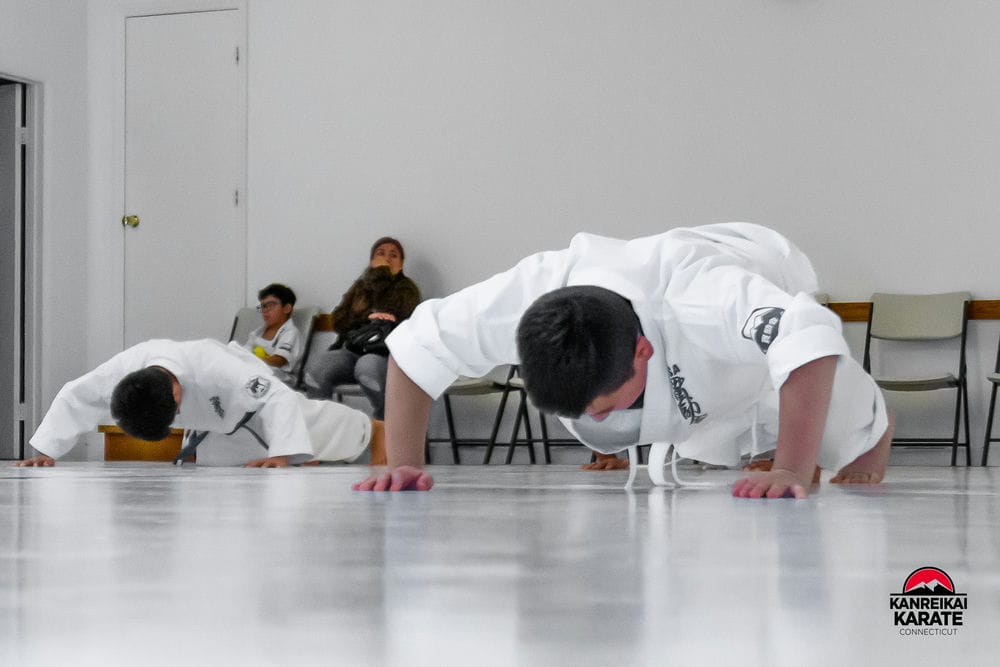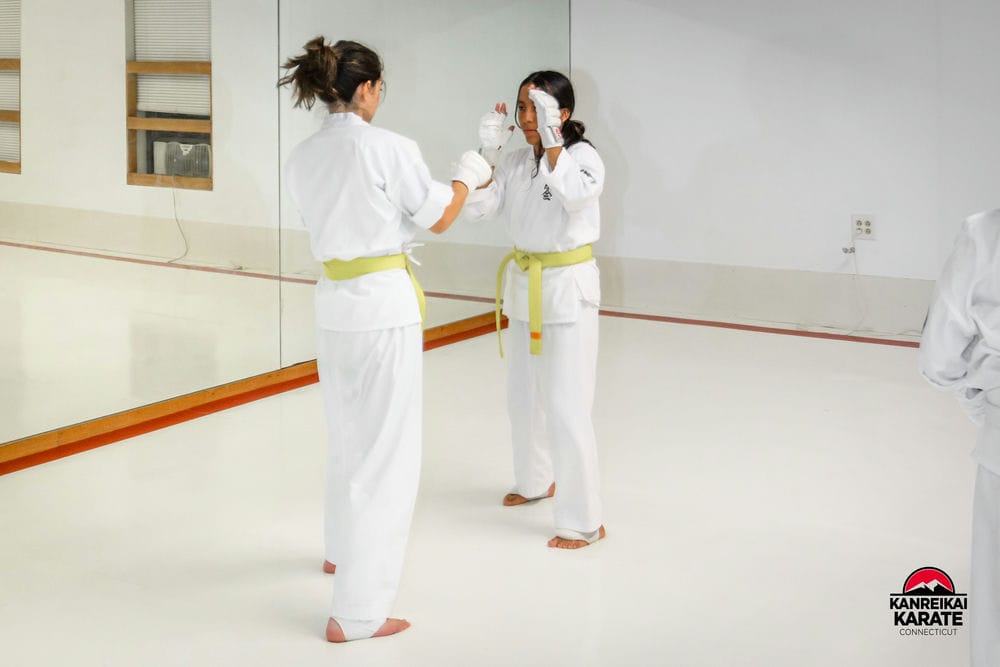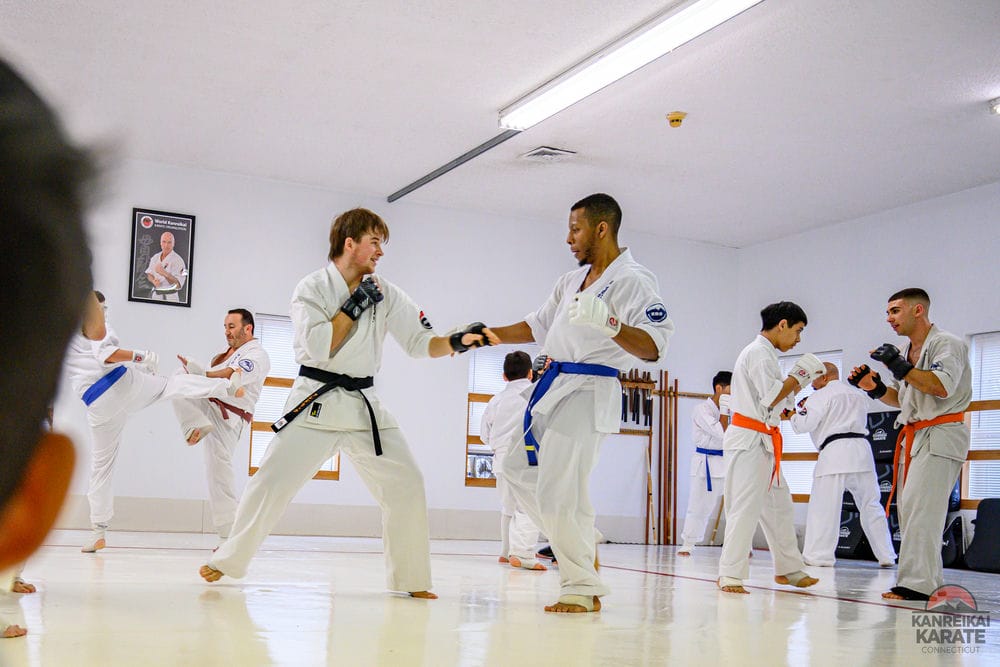Why People Quit Karate
Karate is one of the most popular martial arts globally, with an estimated 100 million practitioners worldwide. However, many karateka (karate practitioners) who begin training end up quitting the martial art after a period of time. There are a variety of reasons why both youth and adults decide to stop practicing this traditional discipline.
Common Reasons People Quit Karate
There are several common reasons why karate students, both kids and adults alike, end up deciding to quit:
Not Having Enough Time
One of the top reasons people end up quitting karate is simply not having enough time to dedicate to regular dojo training and practice. Karate requires attending classes 2-3 times per week and practicing kata, self-defense techniques, and drills at home. Fitting this into busy schedules with school, work, and family obligations can be difficult to maintain long-term for many. As other interests and commitments arise, karate often gets pushed aside.
Not Seeing Enough Progress
Some students get discouraged if they feel they are not advancing through the colored belt ranks or developing skills as quickly as expected. Karate is a lifelong journey of incremental progress, but some become impatient and expect rapid advancement to black belt level. Not seeing the results, they had hoped to lead them to eventually quit in frustration.
Moving to Another City
When dedicated karate students have to move to a new city, they often have trouble finding a new dojo with the same style, atmosphere, and quality instruction as their previous school. Starting over as a white belt again at a different dojo can be difficult for some students, causing them to give up on karate altogether.
Financial Reasons
The recurring costs of lessons, uniforms, testing fees, tournament fees, and gear can add up quickly. For lower income families and individuals, the ongoing expenses may become too much over time, forcing them to quit training. The costs make karate inaccessible for some.
Karate Was More Difficult Than Expected
Some new students sign up for karate expecting it to be easy and fun, only to find the training more rigorous and demanding than anticipated. The strict protocols, formal stances, and intense workouts come as a shock, causing some to quit in frustration. The discipline required exceeds what some expected from watching karate movies.
Injuries
The physically demanding nature of karate training inevitably leads to some minor injuries like strains, sprains, and bruises. Some students get discouraged and quit karate if they sustain multiple injuries or one major injury requiring long recovery periods. The contact involved in sparring or self-defense practice carries inherent risk as well.
Training for Self-Defense
Students who sign up primarily to learn practical self-defense skills for real-world situations sometimes quit when they realize karate also requires diligent practice of kihon (basics), kata, and tradition.
Should You Quit Karate?
Deciding whether to continue or quit karate is a very personal choice that depends on your individual goals and circumstances. Here are a few things to consider if you’re thinking about quitting:
- Talk to Your Sensei – Discuss your reasons for wanting to quit with your dojo’s sensei (instructor). They may be able to adjust your training, direct you to a more compatible dojo, or work with you to overcome obstacles. An experienced instructor can provide guidance specific to your needs.
- Remember Your Original Motivation – Reconnect with the reasons you started karate in the first place. That initial source of passion and motivation can help rekindle your enthusiasm for training.
- Take a Break – You don’t have to quit entirely. Consider taking a temporary break from regular classes while still practicing kihon at home. This short respite can help rejuvenate your interest.
- Focus on Enjoyment – Don’t worry so much about advancement. Try to enjoy karate for the sake of learning, exercising, and spending focused time on the activity itself. The mental and physical benefits themselves can be rewarding.
Related article: The Many Benefits of Martial Arts for Kids
Final Thoughts on Quitting Karate
Earning a black belt in karate requires years of committed training. But quitting karate doesn’t mean you’ve failed if you’ve gained something positive from your experience. At a minimum, you’ll gain improved fitness and flexibility from the training.
The mental focus, discipline, and respect for others instilled in dedicated karate students can stay with you for life, even if you ultimately quit. Karate’s emphasis on continuous self-improvement of both mind and body has lasting value.
If other priorities eventually force you to quit regular dojo training, you can still practice kata at home and retain the patience, calmness, and humility developed through karate. Karate’s teachings extend far beyond the dojo walls.
Remaining adaptable, focused on lifelong learning, and training with consistent enjoyment and passion are keys to sticking with karate long-term. But even if you do quit for practical reasons, karate’s core wisdom and benefits remain deeply ingrained. Osu!
Related article: Is Karate Good Exercise? The Physical Benefits of Karate Martial Arts
Ready to Join Us on the Mat? Sign Up for Our 1 Week Free Trial!
Are you eager to start your karate journey? There’s no better time than now! We’re excited to offer a special 1 week free trial for new students. Here’s what you can expect:
- A welcoming and supportive environment for all ages and skill levels
- Expert instruction from experienced, certified karate instructors
- A safe, clean, and well-equipped training facility
- A variety of class times to fit your busy schedule
- A fun and engaging curriculum that builds strength, discipline, and confidence
Don’t miss this opportunity to try karate risk-free for a full week. You’ll get a taste of the exciting world of martial arts and see firsthand how karate can benefit you or your child.
Signing up is easy! Simply click the URL below to get started. We can’t wait to welcome you to our dojo and help you begin your transformative karate journey.
Let’s get you started on the path to personal growth, physical fitness, and lifelong friendships. Join our karate community today!
Q: What are some common reasons why people quit martial arts like Karate?
A: There are many reasons why people quit martial arts such as lack of interest, financial difficulties, time constraints, difficulty in understanding and executing techniques, fear of sparring, the desire to try out other types of martial arts like mma, and a lack of motivation after achieving certain milestones like the black belt.
Q: I’ve noticed that many kids quit Karate. Why is that?
A: This is often due to a variety of reasons including parents’ financial constraints, losing interest, wanting to try out other activities, or finding the karate practice too difficult or strenuous. There is a time when progress becomes hard to see or difficult to achieve, this is when most kids quit. The instructor’s teaching style and rapport with kids can also play a large role in this.
Q: How does the color of the belt like green belt, brown belt or black belt affect the decision to quit martial arts?
A: Typically, significant milestones such as earning a green belt or a black belt are expected to motivate individuals. However, some people may view the achieving of such milestones as a good point to stop. This can be because they have reached what they set out to achieve or sometimes because the journey beyond, towards becoming a black belt for example, is perceived as too daunting.
Q: Is the transition from karate to another martial art common? Do people usually quit martial arts in general after trying one martial art?
A: Some people may transition from Karate to another martial art like BJJ, Aikido or MMA especially if they feel it better suits their interests or lifestyle. While some individuals may quit martial arts in general after trying one martial art, many others continue to explore different martial arts until they find the one that they most resonate with.
Q: Does the sparring aspect of Karate make people want to quit?
A: For some individuals, yes. Sparring can be physically and mentally challenging, and some people find this aspect of Karate tough. It can also be daunting to some who are not comfortable with physical confrontation. However, others enjoy this aspect since it allows them to apply the techniques they learned in a real-world scenario.
Q: Why do people quit despite achieving a black belt in Karate?
A: Achieving a black belt is a significant accomplishment and it’s usually the goal of many when they initially take up Karate. However, once they achieve it, they may feel that they have got what they came for not realizing that the journey has just begun.
Q: Does the commitment expected from long-term martial arts like Karate put people off from continuing?
A: Quite possibly. Commitment required in getting proficient can be daunting for some people. They may find the practice intense, time demanding and may struggle to maintain a balance between their Karate practice, work, study, and personal life. This can indeed lead to people quitting.
Q: Has the popularity of martial arts superstars like Bruce Lee and media influence impacted people’s decisions to start or quit Karate?
A: Superstars like Bruce Lee have surely made martial arts more mainstream and attracted many to start Karate because of them. However, the reality of hard work and long-term commitment that is involved in martial arts is often much more than what is portrayed in films. This mismatch between perception and reality can be a reason for some to quit.
Q: With a multitude of martial art forms such as Shotokan Karate, BJJ, MMA, etc., is the possibility of trying out other forms a reason for quitting Karate?
A: Yes, it can be. The world of martial arts is so diverse, and each form has its unique appeal. Some may start with Karate, but then get intrigued by the distinct practice elements of other martial arts like BJJ or MMA and decide to switch their focus.
Q: Are there specific characteristics of Karate schools and dojos that contribute to people’s decisions to practice Karate or quit?
A: Absolutely. The atmosphere of the dojo, the teaching style of the karate instructor, the intensity of practice, tolerance for beginners, respect, and camaraderie among students, all these factors can influence the decision to continue or quit Karate.
Authors:




